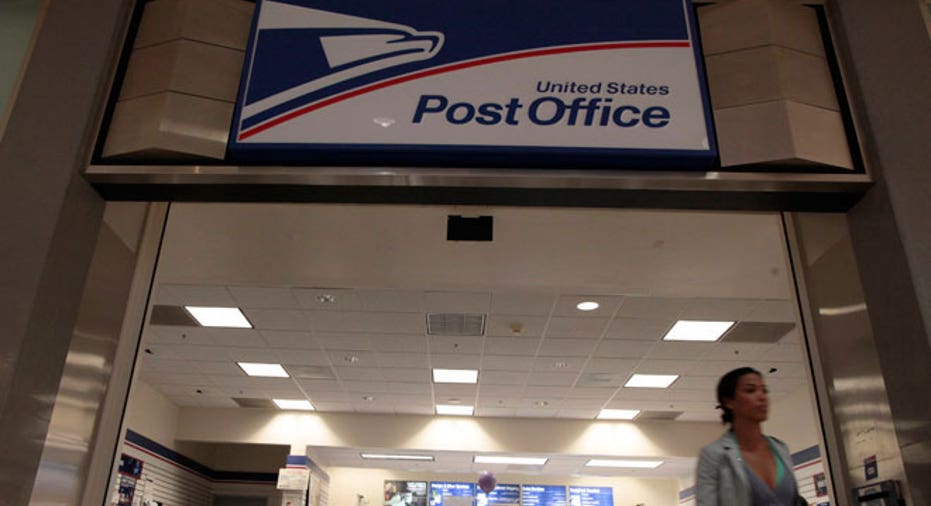U.S. Postal Service to Default Again

The struggling U.S. Postal Service expects to default this weekend, the second time in recent months the cash-strapped agency will have missed a deadline to set aside funds for future retiree health benefits.
The mail agency, which relies on its own revenue from the sale of stamps and other products rather than taxpayer funds, has lost billions of dollars each quarter as Americans move to online communications. It has struggled for years to make the massive annual payments.
Meanwhile, the Postal Service has sought to calm industry fears and reassure customers that failing to meet the next deadline, a $5.6 billion payment due by the end of the fiscal year at midnight on Sunday, will not interrupt service.
"For the second time in two months, the U.S. Postal Service will not make a mandated payment to prefund retiree health benefits," the agency said in a statement on its website this week. "Customers can be confident in the continued regular operations of the Postal Service. We will continue to deliver the mail and pay our employees and suppliers."
The Postal Service has said for months that it could not afford two payments into a fund for future retiree benefits. The first was a $5.5 billion payment initially due in September 2011 but which lawmakers allowed the service to default on it on Aug. 1. The second is the one due on Sept. 30.
The payments are required by a 2006 law and do not affect current retiree benefits.
The Postal Service, its unions and others want Congress to do away with the payments for future benefits, which they say are an unfair burden that other federal agencies do not have.
"Congress needs to address this artificial crisis it created," said Fredric Rolando, president of the National Association of Letter Carriers. "That would remove the bulk of the losses as well as the sense of panic."
The Postal Service and industry groups hoped Congress would prevent the defaults by passing legislation to offer some relief. But lawmakers left until after the Nov. 6 election without finishing a postal bill.
CONGRESSIONAL ACTION
The U.S. Senate passed a bill that would allow the agency to end Saturday mail and return about $11 billion the Postal Service says it overpaid to a retirement fund. The agency said it would use the cash for retirement incentives to help reduce its workforce.
"Every day Congress delays fixing this problem, the financial challenge grows more difficult and the potential solutions become more expensive," Senator Tom Carper, a Democrat, said in a statement on Thursday.
A House of Representatives committee approved a postal bill nearly a year ago but the full House has not taken up the legislation, as lawmakers from rural areas and others balked at plans to allow the agency to close post offices and other facilities. House leaders say they remain committed to passing postal legislation this year.
Some lawmakers hope to pass a postal measure during the post-election lame-duck period. But agreement could be difficult because Congress will be devoting much of its efforts to avoiding the "fiscal cliff" - the year-end deadline for the expiration of hundreds of billions of dollars worth of tax cuts and the triggering of $109 billion in across-the-board spending cuts.
Not reaching a solution to that issue could throw the country into recession, the non-partisan Congressional Budget Office has said.
In the meantime, the Postal Service is gearing up for another sticky situation in October, when the agency must both meet payroll obligations and fork over about $1.4 billion to the Labor Department for workers' compensation.
Postal management has said election-related mail could help them get through the tight period and into the holiday season, usually the agency's strongest quarter. Last year, the agency warned it might have to skip the Labor Department payment, but Postal Service spokesman Dave Partenheimer said the agency expects to make it this year.



















